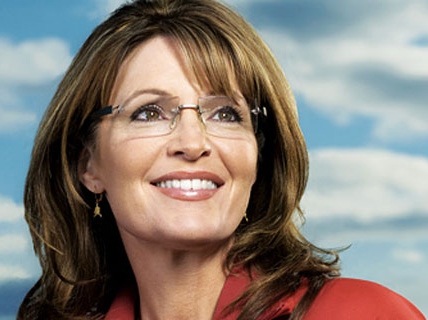
Despite the premise of “Game Change” – that Sarah Palin cost John McCain the 2008 presidential election – Gallup polls prove HBO’s assertion categorically false. Palin wasn’t the reason the Republicans lost the election. She’s the only reason they had a fighting chance up until the time McCain suspended his presidential campaign in late September.
Gallup polls from the last presidential race prove that once Palin joined the ticket on Aug. 29, 2008, McCain’s ratings steadily climbed to a point where the Republican ticket even outshined Democratic Sen. Barack Obama.
In the two weeks before Palin joined the McCain ticket, the Arizona senator drifted in the low 40 percentile range, mostly around 41, 42 and 43 percent, while Obama held as much as an 8 point lead at about 49 and 50 percent. Four days after Palin joined the ticket, however, McCain’s numbers climbed to 45 percent and Obama’s sank to 47 percent, narrowing the gap significantly from eight points to two.
 Between Sept. 4-6, McCain and Palin actually overshot the Obama ticket by 3 percent with the Republicans in the lead at 48 percent and the Democrats at only 45. McCain consistently held that lead until Sept. 15, and then the candidates balanced out with Obama enjoying a mere three-point lead, and no lead at all from Sept. 22-24, when the numbers were tied at 46 percent.
Between Sept. 4-6, McCain and Palin actually overshot the Obama ticket by 3 percent with the Republicans in the lead at 48 percent and the Democrats at only 45. McCain consistently held that lead until Sept. 15, and then the candidates balanced out with Obama enjoying a mere three-point lead, and no lead at all from Sept. 22-24, when the numbers were tied at 46 percent.
So what happened?
As the polls evidence above, when McCain first chose Palin to be his running mate, he energized the right and threw the left into a panic. The New York Times reported that, “McCain astonished the political world on Friday by naming Sarah Palin, a little-known governor of Alaska and self-described ‘hockey mom’ with almost no foreign policy experience, as his running mate on the Republican presidential ticket.”
On Sept. 24, however, McCain shocked the country by saying that he was suspending his presidential campaign to help President George W. Bush and Congress solve the financial crisis. “It has become clear that no consensus has developed to support the administration’s proposal,” McCain said in New York about the 2008 crisis. “We are running out of time.”
McCain advisor Mark Salter told the media that the suspension meant that the campaign would not hold any events or advertise.
Although the former war hero turned senator did it for the good of the country, it was perceived as a brash, erratic act, and that’s exactly how Obama portrayed it.
A Sept. 24, Bloomberg news report was only one illustration of many that pointed out that, “Historians noted that the Civil War, the Great Depression and World War II didn’t prompt suspensions of presidential campaigns.” U.S. News and World Report published a Nov. 24, 2008 report titled, “McCain Suspends Campaign, Shocks Republicans” that made clear the reaction did not fare well across America, or even within the Republican Party:
The sound of jaws hitting the floor reverberated in Washington this afternoon when Republican presidential nominee John McCain announced that he would suspend his campaign and asked that Friday’s debate be postponed … McCain’s unprecedented step, coming hours before President George Bush will address the nation about the financial turmoil, had many Republicans scratching their heads…
“I’m puzzled,” said longtime McCain supporter Ed Rogers, chairman of BGR Holding, a lobbying firm formerly known as Barbour Griffith & Rogers. “I think we, us McCain people, we need the debate. Not having it just freezes the board, and the status of the game right now favors Obama. We don’t need to quit the game. We need to change the game.
Then Obama fired back that it was “more important than ever” for candidates to tell voters how they would deal with the crisis… “It’s going to be part of the president’s job to deal with more than one thing at once,” he said.
Some were intrigued as to how McCain’s decision would play out in the polls, but once he suspended his campaign in late September he never recaptured the lead he enjoyed with the breaking news of recruiting Palin.
It was downhill from there.
McCain’s campaign was taken out of suspension, but it never actually got back off the ground. From then, the gap between McCain and Obama only widened, leaving the Republicans at a severe disadvantage. McCain’s numbers remained steady around 42 and 43 percent throughout October, but Obama’s continued climbing, and by October 31, McCain’s standing had dropped to 40 percent and Obama’s had reached 53 percent – a devastating 13-percent gap.
After the election, on Nov. 7, 2008, an article published by Rasmussen reported that an overwhelming majority of Republican voters said that Palin actually gave McCain’s campaign a boost. “Sixty-nine percent (69%) of Republican voters say Alaska Governor Sarah Palin helped John McCain’s bid for the presidency, even as news reports surface that some McCain staffers think she was a liability.” Exit polls showed the same thing.
Campaign contributions of actors, directors, producers and HBO executives in charge of “Game Change,” go a long way towards explaining why the movie would be so eager to dishonestly portray the Governor in so many dishonest ways — including as a drag on the very ticket she energized.

COMMENTS
Please let us know if you're having issues with commenting.